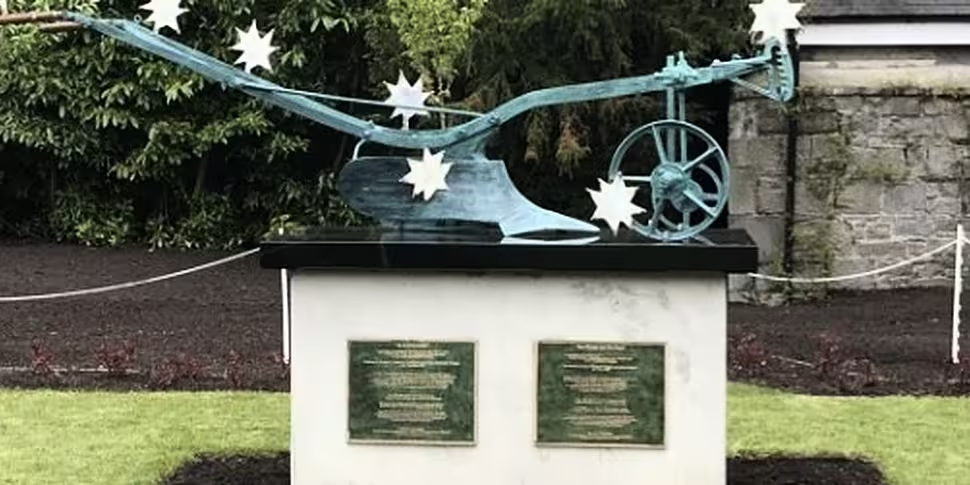President Michael D Higgins and Sabina Higgins have unveiled a new art piece to commemorate the workers of the 1913 Lockout.
Named 'The Plough and the Stars', it is a collaboration between sculptor John Behan, former National Ploughing champion Gerry King and the Office of Public Works (OPW).
The piece is based on a Wexford Star plough, manufactured in the 1930s by the Wexford Engineering company.
It was donated to Áras an Uachtaráin in recognition of the President and Sabina Higgins' involvement in the National Ploughing Championships.
1913 Lockout
Divided by the issue of Home Rule and self-government in 1913 a violent industrial conflict took centre stage: The Dublin Lockout.
Disagreement with the NUDL's Liverpool Executive led to Jim Larkin's suspension and the launch in 1909 of a Dublin-based union for unskilled workers: the Irish Transport and General Workers' Union (ITGWU).
The crunch came on August 15th, when William Martin Murphy - owner of the Irish Independent and controller of the Dublin Tramways Company - offered the workers in the Independent's dispatch department the choice of union or their job.
When union loyalty resulted in dismissal, action saw the dispute escalate with further dismissals in Eason's and on the trams.
The employers then issued a document, locking out any worker that refused to sign a pledge to disown the ITGWU.
By the end of September, over 20,000 were locked out.
"Spirit of those courageous men"
In a speech at Áras an Uachtaráin, President Higgins said: "The 1913 Lockout was a battle for freedom of association, but it also brought into focus the intolerable living conditions that many citizens in central Dublin were enduring.
"While William Martin Murphy has been described by some of his biographers as a man with a social conscience, a former member of the St Vincent de Paul and as a man who favoured paternalistic solutions to social problems, it was not only that he was reluctant to recognise or tackle the root causes of social problems, he sought to cut off any possibilities of collective action that that threatened an insatiable march of capital and its beneficiaries.
"By denying his workers the voice of trade unionism he was denying them a say in their working conditions – a say that would inevitably have led to the payment of a fair wage to his workers at a cost to his own profits."
"Today it is essential that work and the workplace, in all its facets and in its essence as a shared human activity, continue to be given a central place in any discussion of the values by which, we, as a community, wish to live.
"We must test ourselves by regularly asking if we retain the spirit of those courageous men and women who endured months of poverty, hardship and starvation in order to win the right to demand fair and just places of work."









